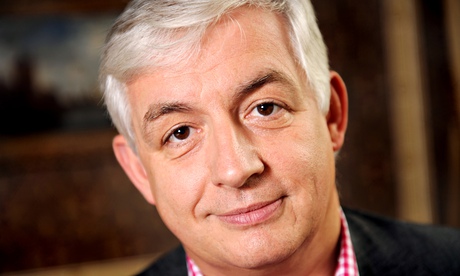
The performance of Elgar's oratorio The Kingdom that opens the BBC Proms on Friday is more than usually significant. As well as launching what's regarded as the world's biggest classical music festival for another year, it also signals the end of Roger Wright's tenure as Radio 3 controller and director of the Proms.
Wright leaves the BBC to take up the role of chief executive at Aldeburgh Music, with responsibility there for the annual Aldeburgh festival. With no successor in place, Radio 3 editor Edward Blakeman is taking on the role of acting Proms director, and for the next few months no one is replacing Wright directly at Radio 3.
What happens after that, though, isunclear. Up to now the succession of Radio 3 controllers and Proms directors at the BBC has been skilfully managed. The two roles have been neatly dovetailed, with a series of appointees given the time to get to grips with the radio station while their predecessors carried on running the summer jamboree, before eventually taking on both roles simultaneously. Roger Wright benefited from that arrangement himself – he took over Radio 3 from Nicholas Kenyon in 1998, but Kenyon remained in charge of the Proms for another nine years, before Wright assumed that role too.
But now for the first time in many years both posts will become vacant simultaneously, leaving a vacuum that may prove difficult to fill. Steering a steady course for Radio 3, which balances the conflicting imperatives of maintaining audience share and upholding the quality and breadth of its output, something that Wright has achieved well, would be enough of a challenge for anyone; taking responsibility for the biggest classical-music festival in the world on top of that demands something rather special.
The corporation has recognised the problem by deciding to appoint a Radio 3 controller before it looks for a new Proms supremo. It's apparently taking its time over that decision – no shortlist of candidates is expected before the end of next month – but if anyone who presents themselves for that job is regarded as capable of fulfilling both roles straightaway, it seems, then they will be appointed to both, and that will be that. If, though, there's an obvious choice for the radio job who's thought to lack the necessary experience to run an international festival on the scale of the proms, then a separate head-hunting process will look for someone else to fill that second vacancy.
Though financial constraints would obviously make the single-appointment option more attractive, it's hard to imagine there are many possible candidates with the qualifications to do both jobs from a standing start. One possibility might be Stephen Maddock, currently running the City of Birmingham Symphony Orchestra, who worked in Radio 3 (and for the Proms particularly) before moving into orchestral management; another would be Graham Sheffield, director of arts at the British Council, who was once a BBC producer before becoming a successful artistic director of the Barbican Centre in London.
If, though, the two jobs are split then the field is much wider, and the possibility of appointing a younger, up and coming Radio 3 controller who might take over the Proms in a few years' time (just as their predecessors did) might seem an attractive one. Either Tom Service, well known to Guardian readers as a writer and blogger and to Radio 3 listeners as presenter of Music Matters, or Gillian Moore, the head of classical music at the Southbank Centre who is generally credited with preserving what remains of the SBC's reputation for serious music-making, might fit that profile well.
Whoever is appointed could then work alongside someone with broader festival and international programming experience, who perhaps would take on the Proms on a fixed-term basis. Such an arrangement might appeal to Paul Hughes, hugely successful and imaginative manager of the BBC Symphony Orchestra, or persuade Clive Gillinson, who used to run the London Symphony Orchestra, to leave New York's Carnegie Hall for a return home. Another possibility might be Serge Dorny, formerly in charge of the London Philharmonic, and about to leave the Lyon Opera, and as an intriguing outsider there's Jonathan Mills, who steps down next month as director of the Edinburgh International festival, and might just fancy the range of musical possibilities that Proms could offer him. Whatever happens, it's going to be an intriguing few months post-Wright.
• The BBC Proms open on Friday and run until 13 September.

